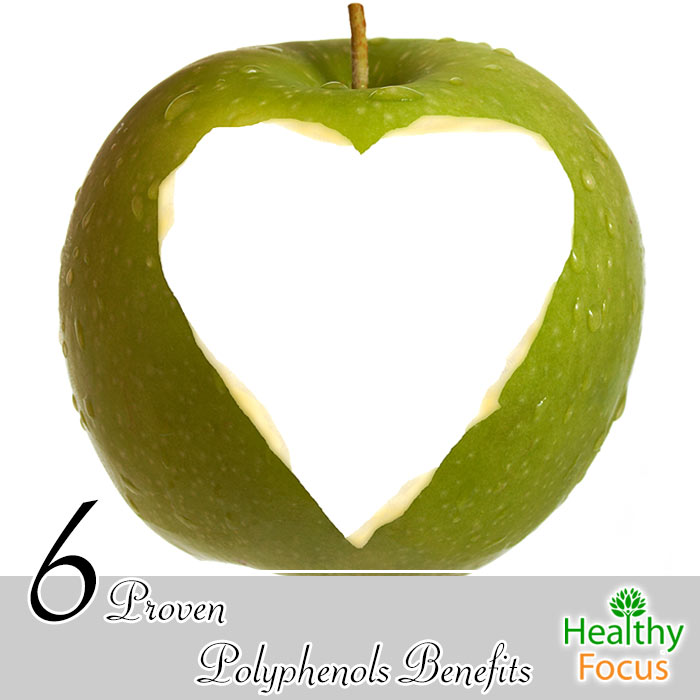If you’ve researched antioxidants and what they can do for you, chances are, you’ve seen the word polyphenols. Polyphenols is a broad, sweeping term that describes phyto-chemicals found in plants.
These compounds are considered to be a rich source of antioxidants. Antioxidants are vital to your health because they protect your cells from free radicals.
These antioxidants scavenge these harmful invaders and potentially reverse the damage the free radicals caused.
Polyphenols are split up into four general groups: flavonoids, lignans, phenolic acids, and stilbenes. These four different kinds of polyphenols can be found in several different food sources:
Flavonoids
Flavonoids are beneficial to your health because they are rich in antioxidants contain anti-inflammatory agents. Flavonoids can be found in red wine, green tea, vegetables, legumes, and fruits.
Lignans
Lignans are beneficial because the help to regulate hormone levels help reduce levels of cortisol, and may be a possible anti-carcinogenic. Lignans can be found with vegetables, legumes, fruits, grains, cereals, and algae.
Phenolic Acids
Getting enough phenolic acid is an anti-inflammatory agent that may help decrease your chances of developing cancer, heart disease, and strokes. Phenolic acid can be found in cherries, apples, plums, blueberries, kiwis, and coffee.
Stilbenes
The jury is still out on the effectiveness of stilbenes however some experts believe that stilbenes is an anti-inflammatory agent that may lower your risk of developing heart disease.
Stilbenes can be found in peanuts and red wine.
The Benefits of Polyphenols
Polyphenols can often be found in a balanced diet containing fruits and veggies. While a diet consisting of fruits and vegetables produce many benefits, polyphenols themselves have their own unique set of benefits worth considering.
1) Heart Health
Getting a significant amount of polyphenols in your diet may improve your cardiovascular health. Some polyphenols have shown to decrease LDL cholesterol, helping to protect you from heart disease.
Polyphenols also increase the health of blood vessels and encourages healthy blood circulation. By maintaining healthy blood circulation, you may also help regulate your blood pressure.
Polyphenols helps to maintain the health flow of blood in the veins, capillaries, and arteries by preventing the clumping of platelets in the blood. The clumping of platelets is associated with angina and heart attacks.
2) Blood Sugar
Polyphenols, specifically flavonoids, may help stabilize blood sugar levels. This active compound works on your blood sugar levels by increasing insulin secretion, enhancing insulin sensitivity, stabilizing glucose metabolism, and preventing cell death.
This may be of interest to those trying to regulate their Type 2 diabetes. Consult your physician to see how adding polyphenols to your diet can help you to maintain your blood sugar levels and diabetes.
3) Neurological Health
Polyphenols may help to protect your brain from aging and degenerative diseases such as Alzheimer’s and may also fight early signs of dementia.
Research has suggested that regularly including polyphenols in your diet may also help protect you from stroke, Parkinson’s disease, multiple sclerosis, and Huntington’s disease.
4) Osteoporosis
Some research indicates that the high antioxidant quality of polyphenols may protect your bones from losing density. Bones that are at a high risk for losing density are more vulnerable to fractures and developing diseases like osteoporosis.
5) Healthy Skin
A diet rich in antioxidants help to promote healthy, radiant skin. Antioxidants also help to prevent skin from the dangers of UV damage. UV damage causes premature aging, dull skin, and even cancer.
6) Cancer Prevention
Antioxidants are linked to cancer prevention. They help to round up free radicals and help to reverse the damage done to cells.
Free radicals are often found in the environment and food and are sometimes unavoidable no matter how careful you are. By scavenging free radicals and helping to repair the damage done to your cells, antioxidants inhibit the growth of tumors.

Leave a Reply
You must be logged in to post a comment.